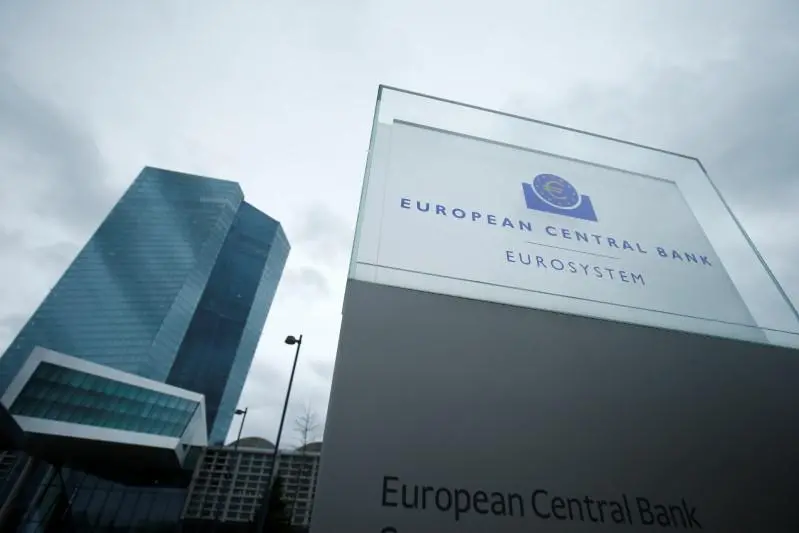PHOTO
Euro zone banks may see a surge in soured loans as rapid inflation and rising interest rates hit household incomes, particularly among the bloc's poorest, the European Central Bank said in a fresh study on Tuesday.
With inflation rising to double digit territory, households are burning through their savings with little respite in sight as income growth trails far behind, especially for the poorest who are disproportionately hit by surging food and fuel costs.
"The simulated impact on banks’ asset quality from the end of 2022 is material, albeit from historically low non-performing loan (NPL) levels, with a downside estimate of the NPL ratio increasing by 80 basis points," the ECB in a Financial Stability Review article.
The ratio of non-performing loans stood at 2.35% at the end of the second quarter, suggesting a one-third increase in the worst case.
Banks in Italy, Portugal, Greece and Cyprus could suffer some of the biggest increases in non-performing loans while France, Ireland and Luxembourg could be among the best performers, the ECB's study showed.
The problem lies almost entirely with lower income households as a 10% rise in the basic cost of living for them would lead to a 20% reduction in spending power, compared to just a 5% reduction among middle-income households.
The problem is unlikely to be of systemic nature, however, as lowest income families hold just 13% of euro zone household bank debt with 70% held by higher-income households, who are not seen suffering materially.
"While outright defaults are likely to increase only slightly, the downside risks to banks’ asset quality are increasing, especially in vulnerable countries," the ECB said.
Higher mortgage rates, a function of rapid ECB rate hikes, could also impact asset quality, though this is likely to take longer to play out as fixed-rate mortgages represent a large portion of the lending stock, the ECB argued.
"Lower-income households are the main source of defaults and increases in NPL ratios may vary across countries," the ECB added.
(Reporting by Balazs Koranyi; Editing by Simon Cameron-Moore)





















